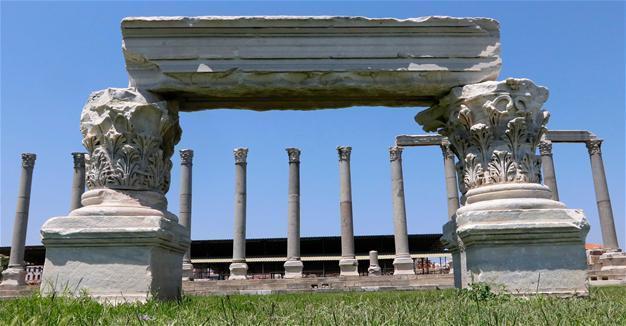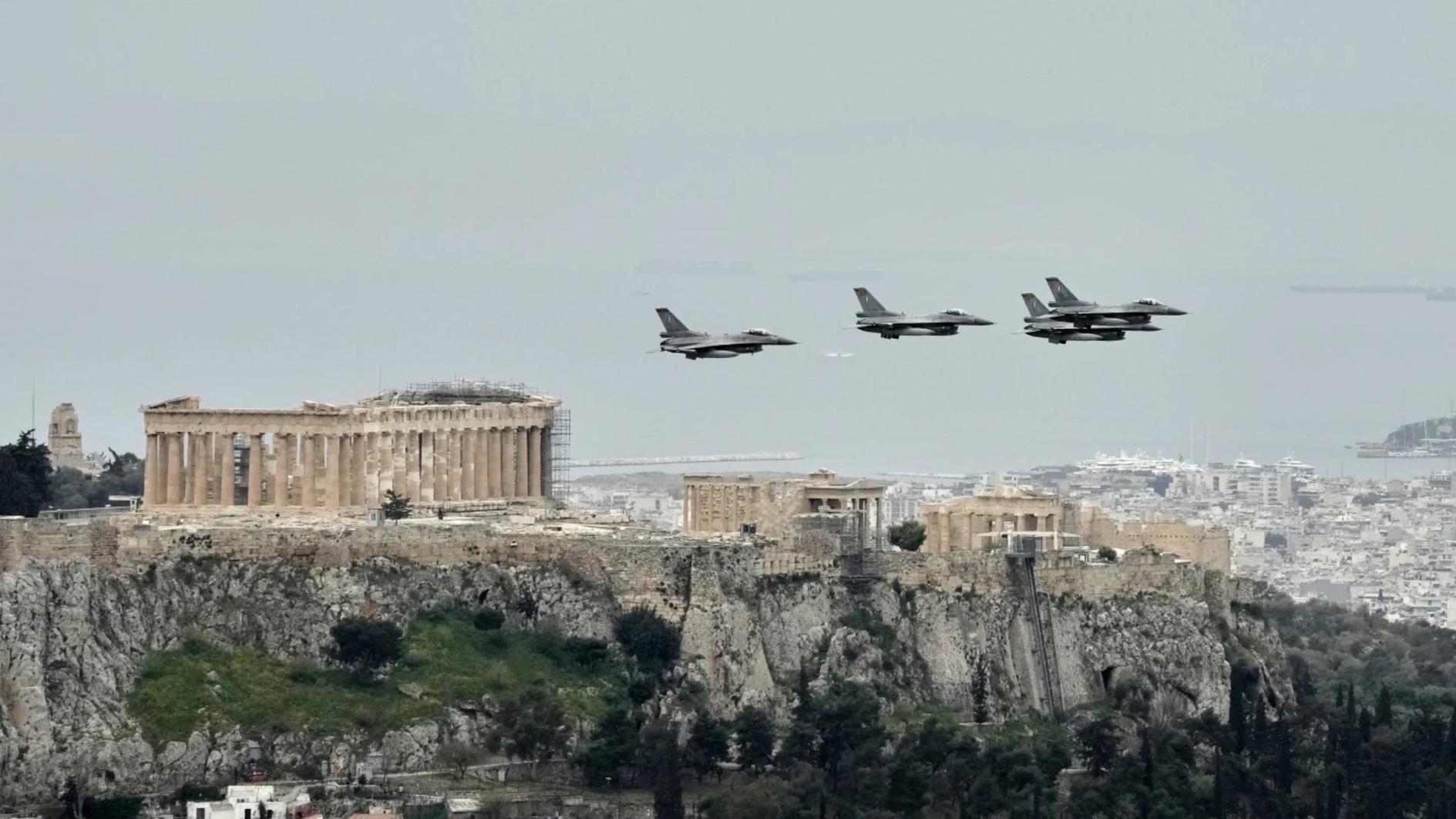Rivalry in Turkey’s ancient cities
İZMİR – Anadolu Agency
 The statements in the basilica of the Smyrna Agora, the last ancient city in İzmir, reveals the historic rivalry among the ancient cities of Ephesus, Sardis and Tralleis.
The statements in the basilica of the Smyrna Agora, the last ancient city in İzmir, reveals the historic rivalry among the ancient cities of Ephesus, Sardis and Tralleis. The artifacts that have been unearthed in the Smyrna Agora, located close to İkiçeşmelik Street, one of the most crowded places in İzmir, show that the region was the meeting point of different cultures 2,000 years ago too.
Previously, a crossword puzzle in the Greek language was found in the Smyrna Agora.
The Greek texts in the agora have writings such as, “The Ephesians are the first in Asia,” “Sardis is the biggest” or “Tralleis is the first in Asia,” which reveal the rivalry among Sardis, located close to the Sart neighborhood of Manisa’s Salihli, Tralleis in the north of Aydın and Ephesus in Selçuk and reveal the sweet competition among the ancient cities in the region.
Head of the Smyrna Agora excavations, Akın Ersoy, said İzmir and its vicinity was an attraction center in ancient times as well as it was understood from the texts in the section of the basilica in the excavation field.
Ersoy said Ephesus, Sardis and Tralleis were close to each other in the same region and people who came from this region to the Smyrna Agora were also competitive among one another.
“We see that people wrote the names of their cities on the walls in the Smyrna Agora 2,000 years ago. We don’t know why people came here yet but we think they came for a short time with the purpose of trade,” said Ersoy.
Ersoy also said the Greek statements dated back to the end of the second century and the beginning of the fourth century but all were written in the same time.
Like statements of football fans
Ersoy said the Smyrna Agora was a coastal town and received immigrants from the surrounding cities at the time.
“They may have come for business but wanted to express their love for their own city on the walls here. Or they were written by immigrant groups, who did not forget their own roots. Maybe there was a stand in the place of these statements and the owner of the stand wrote these statements to draw customers of these cities to his stand. It reminds us of graffiti or the statements written by football fans. Even 2,000 years ago, people did not forget the place they came from. Today, there are associations in cities and people of the same roots gather there. It seems people formed groups 2,000 years ago too. We see it in the texts on the wall,” Ersoy said.
He said İzmir used to have contacts with the western Anatolian cities as we understand it from the ship drawings on the walls and coins.
















